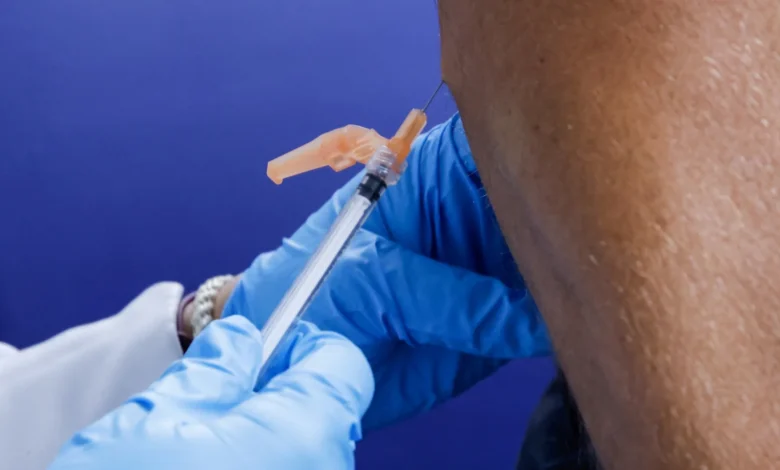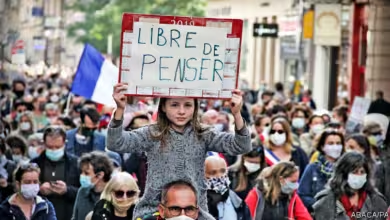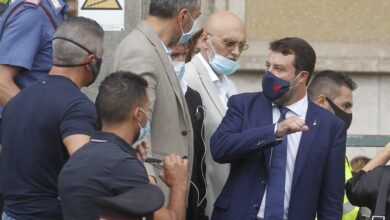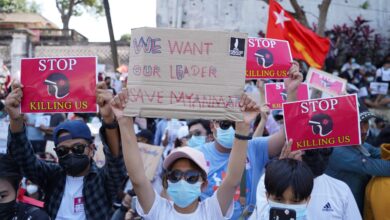A Large Part of Humanity is Being Treated as Disposable, Despite Mpox Being Avoidable

Recently, a new virulent strain of pox has emerged in central Africa, and in the last year, the virus has caused over twenty thousand cases and half a thousand deaths, mainly among children. However, the Democratic Republic of the Congo (DRC) has been hit most severely by this crisis. Even after the WHO classified the outbreak as a ‘public health emergency of international concern’ in mid-August, the global society still ignores the outbreaks, disregarding the lives of people in areas considered insignificant in the global economy.
The first signs of the pox threat appeared two years ago, with the less dangerous strain going viral in Europe and the United States. Some people argued that vaccination campaigns were immediately carried out in the developed countries of the West at that time. However, the response to this African outbreak has worsened and cemented the negative attitude towards African health crises.
Developed countries bought vaccines. However, most of them reserved those vaccines domestically. Africa, where pox has been prevalent for the last two decades, was left out. The first vaccine shipments for the African continent arrived only on August 27 and September 5. Nigeria received 10,000 doses, and the Democratic Republic of the Congo 100,000 doses. The fact that these shipments were delayed shows how much this crisis could have been prevented if the world had priorities in its proper perspective.
The role of the pharmaceutical industry is also complicated. A producer of pox vaccines called Bavarian Nordic has considerably increased the price of vaccines, making them unaffordable to many African states. Although most of these vaccines have partly been developed through funding by governments, Bavarian Nordic is selling this vaccine at $200 per dose, which is exploitative and unaffordable given the neglected status of most African countries. Critics have condemned the company for using technology for its profits and not people’s health, demanding that the tech be in low- and middle-income countries.
However, it gets worse due to the continued lack of willingness of the developed countries to donate vaccines in the right quantities or provide adequate support to expand manufacturing capabilities in the local production of vaccines. However, donating the immunization by Spain worth 500 000 doses is a rare example. Rich countries have not been able to offer the support needed for the DRC’s preparedness for further health crises and are concentrating more on their supplies.
The broader problem is indicative of a deep-seated problem of health equity that exists in the world today. It has been established that the international community needs to address Africa’s health needs adequately. Still, it is not a one-off incident but a usual modus operandi of world politics. The DRC today is still one of the poorest countries in the world even though it sits atop an impressive amount of mineral resources because the country was exploited and its resources have been plundered by foreign interests in the recent past as well as have been struggling with internal conflicts in the present. This systemic injustice holds for health crises in which African lives matter less than profits and geopolitics.
Apart from vaccine donations, there’s a need for more action on the ground to avert this crisis. It is essential to ensure that COVID-19 vaccines are widely distributed, strengthen healthcare systems in Africa, and capacity-build and share technology so that African nations can manufacture their vaccines. In addition, it is essential to focus on the factors that led to the creation of the inequalities, such as regrettable instability in the DRC and exploitation of the country’s natural resources.
This can no longer continue: large parts of humanity are neglected and exploited. The pox outbreak points to the interrelatedness of our world’s health and the need to respect the worth of each life around the globe. Not making the right choice means continuing the injustice and potentially introducing new and yet more deadly diseases that can strike anyone.




